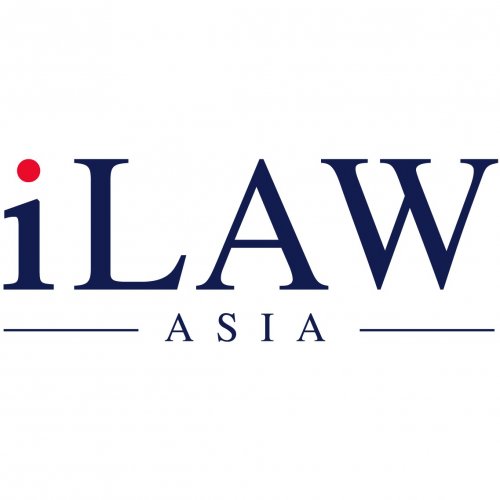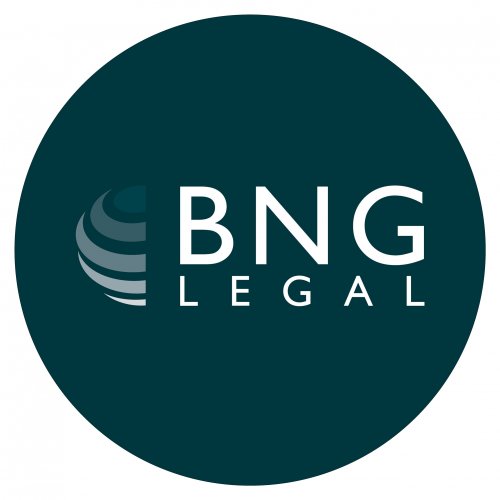Best Private Equity Lawyers in Phnom Penh
Share your needs with us, get contacted by law firms.
Free. Takes 2 min.
List of the best lawyers in Phnom Penh, Cambodia
About Private Equity Law in Phnom Penh, Cambodia
Private equity refers to investment funds that directly invest in private companies or buy out public companies to delist them from stock exchanges. In Phnom Penh, Cambodia, private equity activity has increased in recent years as the country's economy develops and more opportunities arise in sectors like agriculture, real estate, finance, and technology. Private equity law in Phnom Penh is shaped by a combination of Cambodian corporate law, foreign investment regulations, securities laws, and sector-specific requirements. Navigating these legal areas is critical for structuring private equity deals, protecting investor interests, and ensuring compliance with all local laws.
Why You May Need a Lawyer
Whether you are a local entrepreneur, a foreign investor, or a fund manager, dealing with private equity investments in Cambodia presents certain legal complexities. A lawyer experienced in private equity can assist in various situations:
- Drafting and negotiating investment agreements
- Conducting legal due diligence on target companies
- Structuring investment vehicles in compliance with Cambodian law
- Addressing regulatory requirements for foreign investors
- Managing risk through proper documentation and deal structure
- Resolving disputes between partners, shareholders, or stakeholders
- Navigating exit strategies, including IPOs or mergers and acquisitions
- Ensuring compliance with anti-money laundering regulations
- Advising on tax implications and incentives for investors
Legal support ensures that investments are secure, compliant, and beneficial for all parties involved.
Local Laws Overview
Several key Cambodian laws impact private equity investments in Phnom Penh. Understanding these basics is important before entering the market.
- Investment Law: Cambodia’s Law on Investment provides certain incentives for investors, such as tax holidays and customs exemptions, but also sets out requirements for project registration and approval.
- Company Law: The Law on Commercial Enterprises regulates the formation, management, and dissolution of companies. It is critical in structuring private equity investments and shareholder rights.
- Securities Law: The Law on Issuance and Trading of Non-Government Securities governs public offerings, private placements, and disclosure requirements, which are relevant for exit transactions.
- Foreign Ownership Rules: Foreign investors may face ownership limitations in certain sectors and must comply with reporting and registration obligations.
- Competition Law: The Law on Competition aims to provide a fair business environment which can impact mergers or acquisitions.
- Tax Law: Taxation is an important consideration, including capital gains, withholding taxes, value added tax, and specific incentives for qualifying investments.
- Dispute Resolution: Courts, as well as arbitration options such as the National Commercial Arbitration Center, are available for resolving disputes.
Because regulations can change and sector-specific rules may apply, consulting a knowledgeable lawyer is highly recommended.
Frequently Asked Questions
What is the definition of private equity in Cambodia?
Private equity in Cambodia refers to investment in private businesses or enterprises that are not listed on public stock exchanges, often involving buyouts, venture capital, and growth capital strategies.
Can foreign investors participate in private equity deals?
Yes, foreign investors are permitted to participate in private equity investments in Cambodia, though some sectors impose restrictions on foreign ownership or require approval from relevant authorities.
What constitutes legal due diligence in a Cambodian private equity transaction?
Legal due diligence includes reviewing the target company's legal documents, contracts, licenses, compliance with local laws, ownership structure, and possible liabilities to assess risks before finalizing an investment.
How are private equity agreements typically structured?
Agreements are usually structured through shareholder agreements, investment agreements, or joint venture contracts that outline rights, obligations, profit sharing, exit terms, and dispute resolution mechanisms.
Are there exit options available to private equity investors?
Yes. Common exit options include selling shares to strategic buyers, conducting initial public offerings, management buyouts, or selling to other private equity funds. Each option requires careful legal planning.
Are there any sectors where private equity is not allowed or is restricted?
Certain sectors, such as land ownership, media, or those affecting national security, may restrict or prohibit foreign or private equity investment. Legal counsel can clarify sector-specific regulations.
What government approvals are required for private equity investment?
Approvals may be required from the Council for the Development of Cambodia, Ministry of Commerce, or other regulatory bodies, depending on the business sector and investment structure.
How can private equity investors protect their interests in Cambodia?
Investors can protect their interests by ensuring strong contractual terms, clear governance, adequate due diligence, and robust dispute resolution clauses in agreements.
What are the tax considerations for private equity investments?
Taxes may apply to capital gains, dividends, interest, and other income. Tax incentives might be available for certain qualified investments, so professional advice is essential.
How long does it typically take to close a private equity transaction in Phnom Penh?
The timeline varies depending on the complexity of the deal, due diligence findings, regulatory approvals, and negotiation length, but most transactions take several months to complete.
Additional Resources
- Council for the Development of Cambodia - the main governmental agency overseeing investment projects
- Ministry of Commerce - responsible for company registration and licensing
- National Bank of Cambodia - regulates financial and banking activities
- National Commercial Arbitration Center - offers an alternative dispute resolution mechanism
- Cambodia Securities Exchange - relevant for IPOs and securities transactions
- Cambodia Investment Board - provides information on investment incentives and requirements
- Legal and financial advisory firms specializing in Cambodian corporate and investment law
Next Steps
If you are considering or already engaged in a private equity investment in Phnom Penh, it is vital to seek professional legal advice. Start by identifying a reputable law firm or legal advisor with experience in private equity and Cambodian law. Prepare all relevant business documents, draft a list of questions specific to your situation, and discuss compliance, risks, deal structures, and due diligence requirements during your initial consultation. Qualified legal guidance can help ensure your investment is compliant, secure, and optimally structured for success in Cambodia's growing private equity market.
Lawzana helps you find the best lawyers and law firms in Phnom Penh through a curated and pre-screened list of qualified legal professionals. Our platform offers rankings and detailed profiles of attorneys and law firms, allowing you to compare based on practice areas, including Private Equity, experience, and client feedback.
Each profile includes a description of the firm's areas of practice, client reviews, team members and partners, year of establishment, spoken languages, office locations, contact information, social media presence, and any published articles or resources. Most firms on our platform speak English and are experienced in both local and international legal matters.
Get a quote from top-rated law firms in Phnom Penh, Cambodia — quickly, securely, and without unnecessary hassle.
Disclaimer:
The information provided on this page is for general informational purposes only and does not constitute legal advice. While we strive to ensure the accuracy and relevance of the content, legal information may change over time, and interpretations of the law can vary. You should always consult with a qualified legal professional for advice specific to your situation.
We disclaim all liability for actions taken or not taken based on the content of this page. If you believe any information is incorrect or outdated, please contact us, and we will review and update it where appropriate.















